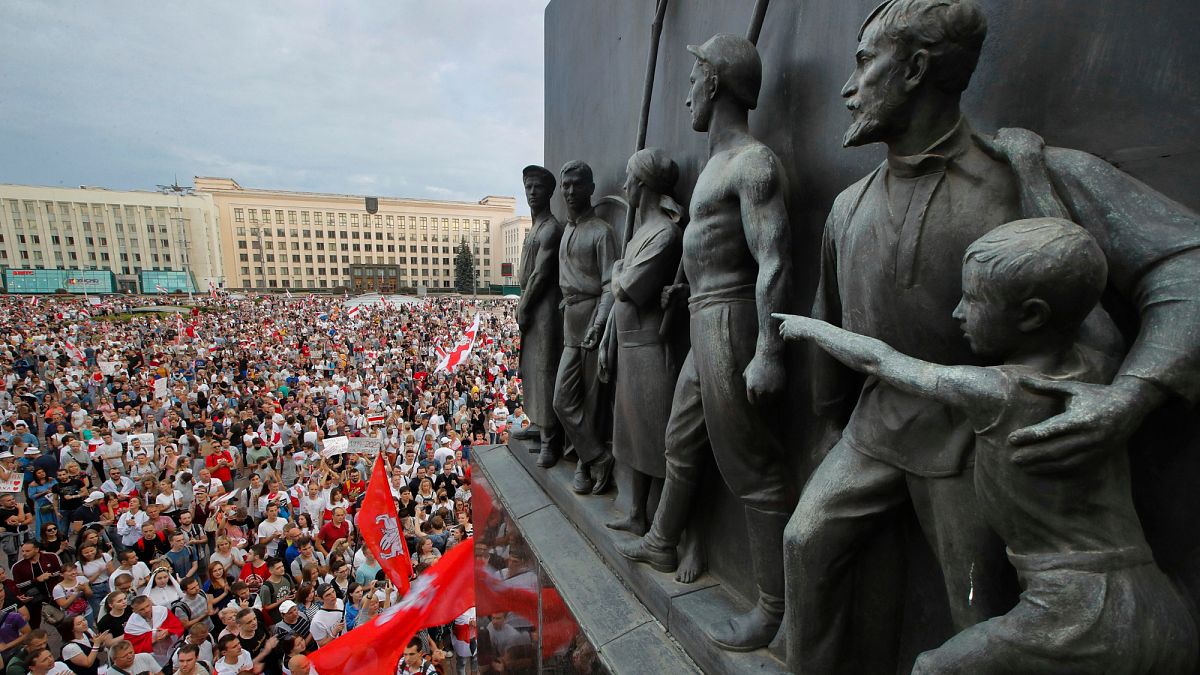

In a series of current global events, noteworthy sociopolitical dynamics have unfolded, shedding light on the transition and complexities in various regions. These unfolding narratives resonate with deeper themes of legislative progress, human rights advocacy, and institutional reform, contributing to the ever-evolving tapestry of global governance and civic life.
In Belarus, the persistence of dissent highlights the country’s ongoing political challenges. Following the contentious 2020 elections where President Alexander Lukashenko secured a sixth term—disputed by opposition figures and international observers as fraudulent—mass arrests and convictions of government critics persist. The rights group Viasna reports continued efforts by authorities to suppress dissent, reflecting an extended period of sociopolitical unrest and the struggle for democratic principles in the nation. The situation underscores the complexities faced by Belarusians as they navigate a landscape marked by tensions between governmental power and citizens’ aspirations.
Meanwhile, in the United States, a federal judge has interceded to block attempts to terminate temporary protected status (TPS) for approximately 521,000 Haitian immigrants. This decision maintains crucial protections, preventing the potential deportation of many individuals prior to the existing program’s expiration date. The legal ruling stands as a significant moment for Haitian communities across the country, reinforcing the ongoing dialogue around immigration policies and the lives affected by such legislative decisions. This development underscores the pivotal role judicial systems play in safeguarding human rights and influencing immigration dynamics.
Across the Atlantic, the legal affirmation of same-sex partnerships in the Cayman Islands marks an important milestone for LGBTQ+ rights within British Overseas Territories. A London court recently upheld the legality of such unions, rejecting appeals that contested the authority of the island’s governor to enact the legislation. This decision is seen by advocates as potentially transformative, inspiring similar progress in other territories grappling with LGBTQ+ advocacy. The affirmation of same-sex partnerships highlights the incremental legislative changes that can advance equality and foster a more inclusive society.
Closer to home, within the United Kingdom’s justice system, significant leadership changes reflect efforts to address historical oversights. Karen Kneller, the chief executive of the Criminal Cases Review Commission, has resigned following critiques over the handling of a high-profile miscarriage of justice case involving Andrew Malkinson. Known for her long tenure, Kneller’s departure marks a moment of reflection and potential reform for the Commission, which serves as a guardian of integrity within the justice framework. This transition underscores the importance of accountability and the continued pursuit of trust within institutional frameworks.
These developments, from Europe to the Americas, encapsulate the intricate interplay between governance, justice, and societal values. They serve as a reminder of the persistent quest for equality, justice, and human rights in a complex and interconnected world. Through legislative and judicial avenues, these stories illustrate the global narrative of striving towards a fairer, more just society. As nations and communities navigate these changes, they illuminate pathways towards resilience and progress, promising a more hopeful future.
Source: {link}
